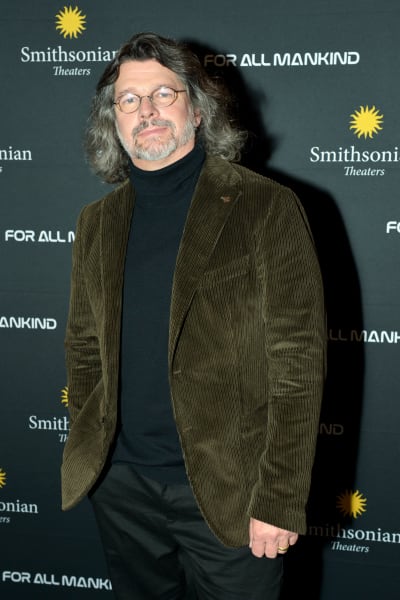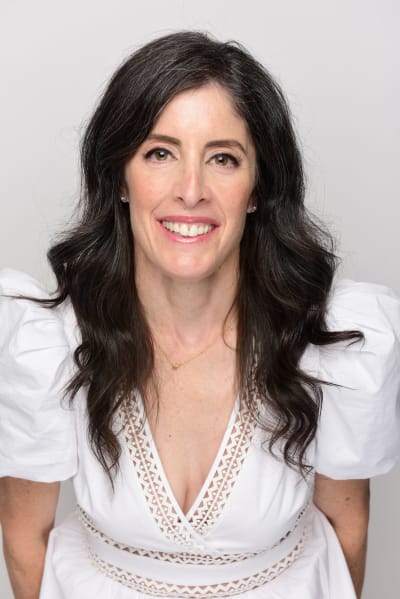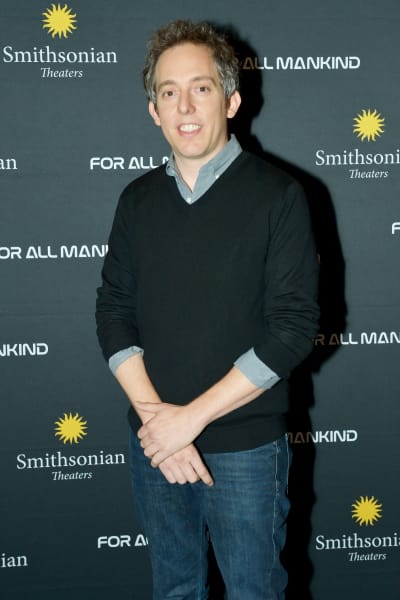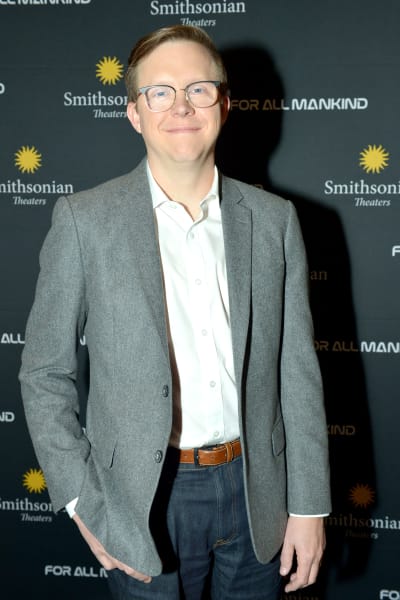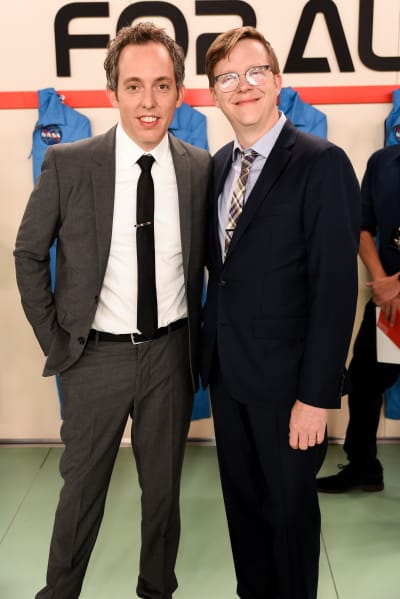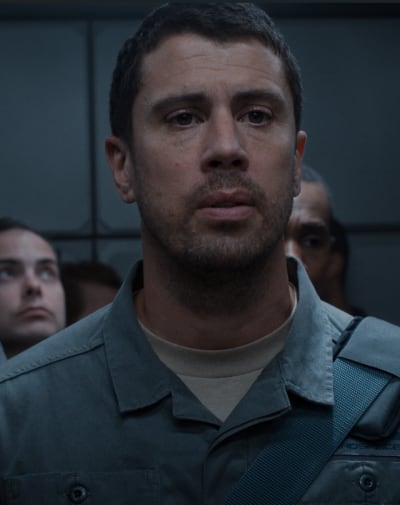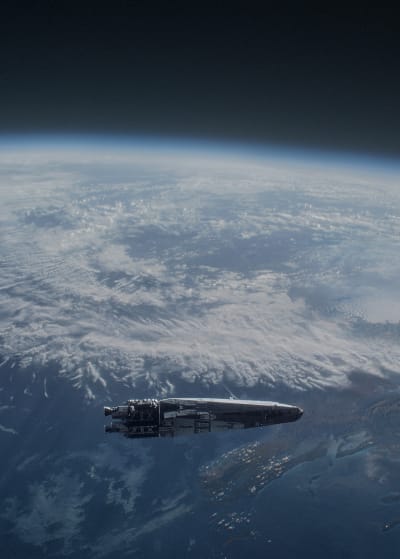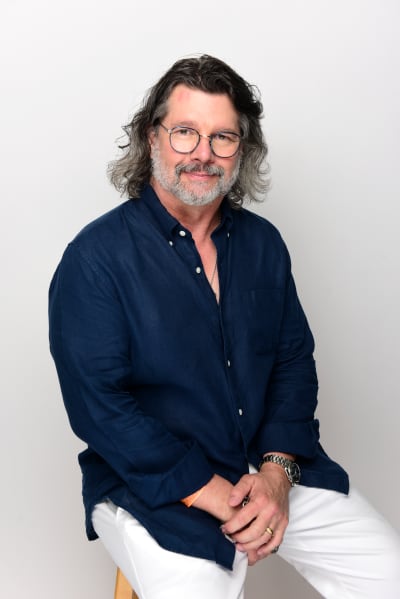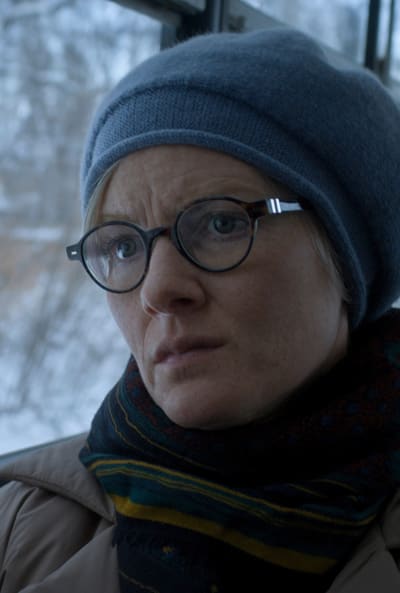Carissa Pavlica
Curated From www.tvfanatic.com Check Them Out For More Content.
We are about to embark on the next leg of our Mars journey as For All Mankind Season 4 takes flight on Friday, November 10, on Apple TV+.
As the series hurtles eight years into the future, we rejoin those who have created the first successful colony on Mars and discover many new faces who have been imperative to its success.
The series boasts one of the best creative teams in the industry, and we had the opportunity to catch up with Creator and Executive Producer Ronald D. Moore, Executive Producer Maril Davis, and Executive Producers and Showrunners Ben Nedivi and Matt Wolpert.
We’ll be sharing many of their thoughts to create excitement for what’s ahead, and we’ll have more tidbits from our chats throughout the season.
The world has changed, and we’ve got some insight into what to expect and how they feel about charting new territory while leaving old favorites behind and other exciting insights into their creative process as they tease the new season.
We’re jumping eight years into the future with Season 4. Why eight years, and how has the world changed in that time?
Ronald Moore: The exact choice of the year is always a matter of debate, and we always play around with what the year is.
Sometimes, it has to do with whether or not there was a presidential election that year or not or what were the actual events that took place in a given year. So we always want it to be somewhere in the eight to ten range.
In our particular fourth season, the biggest thing is that there’s a much larger Mars base that’s now controlled by several nation-states in addition to Helios, which is a private company.
There’s a lot more people working there now. They’re not just astronauts. A fair number of them are civilians that are there that are doing it for the money or for a paycheck, and there’s a conflict between them and the sort of old-school astronauts.
And that’s part of the story of the season is sort of the upstairs-downstairs quality of what’s happening on Mars.
How tough is it to refocus from the events of season three to season four? Because there was a really big change at the end of season three. What’s it like catapulting through all of that and redirecting your focus to new characters and a new timeline?
Maril Davis: Well, I think that’s what the time jump gives you. It’s the ability to not have to deal with the immediate after-effects and be able to take someone that’s ten years in, and it’s not as fresh in their minds.
And it’s fascinating to me from a character point of view to pick them up there and to know that over the season, we’re going to peel back the layers of that onion in terms of character development and see how they dealt with everything that happened in the aftermath of season three.
There’s going to be reckonings for several of our characters as they have moved on from all of the activities that happened in the end and the JSC bombing and everything else, and to find out how they’re dealing with that and how they’ve moved on.
What’s your process for deciding in between seasons what characters will make it through the time jump and it’ll be a focal point, and which ones will not?
Ben Nedivi: Basically, it’s a blackjack deck we take out, and we… No, I’m kidding. [laughs] No. It’s a very interesting process that I think we’ve set out early on, knowing what the arcs of a lot of characters are going to be.
So we knew with Ellen that once she’s president, once she’s president and goes through what she goes through in Season 3, we felt like that was the end of an arc for her, that going beyond that in terms of what’s an ex-presidency like didn’t fit in with the show in this season.
So sometimes that comes up as we’re going through it, and we realize, oh, this character, like, for instance, Gordo and Tracy, we didn’t originally think they were both going to die at the end of season two.
But the more we talked about the story, the more it evolved, the more it felt like that was the right ending for them.
So the real guiding light, I would say, is what’s best for the show, what’s best for the story arcs, and putting aside our personal feelings about the characters or the actors because that can only get in the way of really what’s best for the show in many cases.
How hard is it to say goodbye to some of these characters that you’re so invested in and have written such great stories for?
Matt Wolpert: It’s incredibly hard, even just having to broach the topic because these are characters and they’re actors, but they’re also our friends and our colleagues that we have worked with for years.
Obviously, we will see them again; it’s not like they’re actually dying or anything, but it is the end of an era in our show, and so it’s very emotional for everybody, and we make sure to treat it with the respect that it deserves
The actors bring this show to life in such an amazing way, and as much as we put it down on the page, they put it on its feet and add more to it than we could even imagine.
So they’re our real partners in this, and to have to say goodbye to them for the sake of the story is necessary, but it’s definitely difficult.
The nature of the story is that you don’t always get to give characters an ending, even if we find out bits and pieces about what happened to them. How hard is that? Do you write more in your head? Is there more to that story than we see?
Ben Nedivi: Yes, we do. And you have to be judicious when you’re writing a show like this that jumps decades, you’re right, because there’s only so much we can tell of a particular character story, and a lot ends up on the writer’s room floor and then gets on the cutting room floor because at the end of the day, we can only make it so long a show.
But I think for us, what I love is we really trust our audience, and I like that the audience sometimes has to fill in the blanks.
I think sometimes the nature of jumping a decade means you have to pick up the Easter eggs that are dropped in about what happened in between seasons.
The idea of the show from the beginning was a bigger goal of jumping in time and really showing the butterfly effect of our relative history, and the only way to do it is to really push through the decades, and that means going through characters a little quicker than most shows.
There is a significant new character highlighted in the trailer named Miles. What can you tell us about Miles and who he represents in the face of Mars and the Space Station?
Maril Davis: Well, I think what’s great about Miles is he was an oil worker out of a job and, like everyone else, trying to get his piece of the American dream and have enough money for his family.
He has to look off Earth to get those opportunities and thinks something big is waiting for him on Mars. And we’ll see over the season what happens to him and how he does up there.
But I think what’s more fascinating is he represents, this season, the first time we’ve introduced civilians into space.
How they’ll interact with astronauts and engineers who we’re used to seeing up there will be a real pivotal moment in this season and will kind of play out in this kind of upstairs-downstairs aspect of it, which is really fascinating.
How would you describe how this season treats both the scientific aspect of space and its commercialization?
Ronald Moore: One of the hallmarks of the show is that it’s always pushing technology forward at a faster pace than it did in real life.
I think now you’re seeing the impact of that in the fourth season. Nuclear fusion is now a part of everyday life on Earth. It’s made profound changes in human society.
There’s been some losers in that equation, too. There are people who lost their jobs because of the diminishing of the fossil fuel industry and the certain backlash against some of those things that have happened.
So I think we see that technological change has been overall a positive thing for mankind, but that it’s not a bed of roses. There are some losers, and there are people that struggle with it, and you want to play that.
You want to see that progress sometimes does come at a cost and that not everything is easy, even if the goal is worth pushing towards.
You have built this incredible world, but so much of what you just mentioned, such as fossil fuels and everything, we don’t even get into that on the show. How much of all that is mapped out in your minds, and how does it influence the story that you’re telling?
Ronald Moore: Quite a bit of it. We talk a lot in the writers’ room about things like that, that the fossil fuel industry would begin to die, and as a result, climate change is not something that is really talked about on the show because it kind of is taken care of, and you talk about certain geopolitical things that are happening, and we try to work some of them into the main storyline so that they’re talked about.
Other things are kind of referenced in newscasts, or they’re just implied by the way the world has developed.
But we spend a fair amount of time, as writers, talking about this world we’re creating and how it operates and what are the changes, what are the obstacles still, what are the new challenges that they’re facing as they move forward in this sort of alternate way.
When you’re telling these stories, do you ever wish that you could expand upon this universe and go back and talk about the other areas of the world and the other areas of life in general outside of space?
Maril Davis: Oh, all the time. I mean, I think what’s difficult about this show is there are so many different aspects you wish you could tell, but we just don’t have time.
As is, we’re already a fairly large ensemble show, so there are a lot of stories to tell. But so much also happened in the time jumps of those ten years that I feel it would be fascinating to be able to go back and see some of those things.
But yes, that’s the difficulty, I think, for the writers. Every year, it’s like, “Okay, out of so many stories to tell, what are the stories that we feel are the most important and will activate our characters most this season?” So yes, it’s always a struggle.
And as you go down the rabbit hole of international relations, what’s been the most fun manipulating world powers?
Ronald Moore: It’s been fun to play around with the relationship between the Soviet Union and the United States, just having the Soviet Union still around in 2003 and what would that look like.
How would it have survived and developed, and what would it be? Because saying that because the space race continued, and because of both powers putting much more of their focus and attention into it, that kept the Soviet Union alive, it actually kept it going.
The international prestige that they reaped from being the first on the Moon also kept them going and gave them much more credibility in the world community.
I think those are just fun alternate ideas. And as someone who likes history and politics, I found that really fascinating.
Carissa Pavlica is the managing editor and a staff writer and critic for TV Fanatic. She’s a member of the Critic’s Choice Association, enjoys mentoring writers, conversing with cats, and passionately discussing the nuances of television and film with anyone who will listen. Follow her on X and email her here at TV Fanatic.



